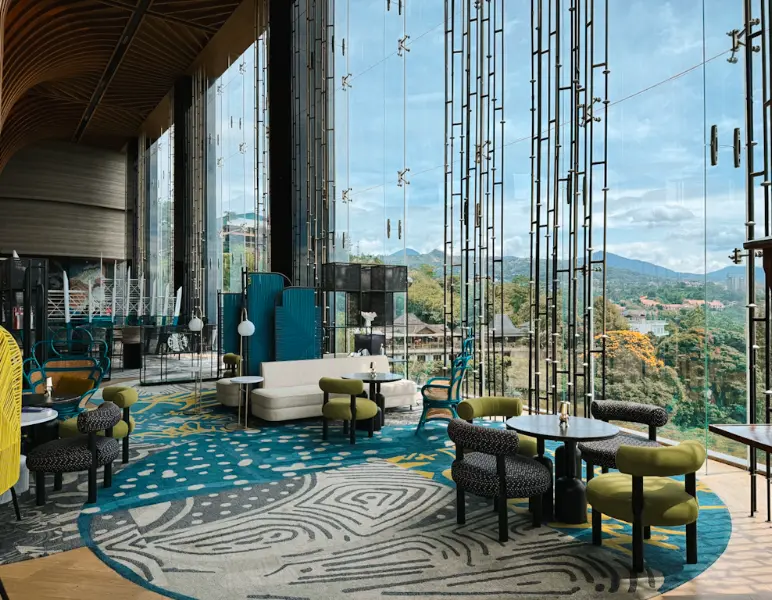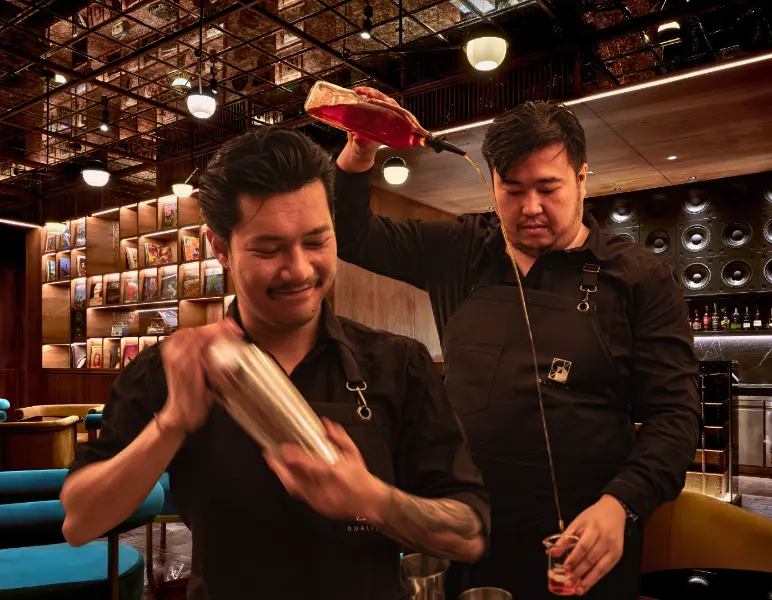On the occasional event celebrating International Women's Day, we chatted with Nurdini Prihastiti, founder of Dama Kara, a batik brand from Bandung which was only founded in 2020 but has already attracted the attention of many people through its beautiful and contemporary batik products.
Q:Can you tell us a little about your background?
A: Hello, my name is Dini, I graduated from IPB S1 majoring in communication and community development. I once worked for a large company in Indonesia for 3 years. Until finally, I entered the phase of wanting to do something more for other people. I feel like this because throughout my life I have had a lot of help from good people. So I thought why not just create a business that can help other people's lives.
Q: Interesting. So how did you end up starting Dama Kara?
A: There's a tragedy behind it. So my business with my husband before starting Dama Kara was in the garment business, providing clothes for companies. Our focus was of course business-to-business. In 2019, we sent clothes to one of our big clients in Kalimantan. Unexpectedly, the ship carrying our goods caught fire in the Masalembo Sea. This caused huge losses to our company. So, from this incident, we became self-reflective, "Have we done a lot of good things in our lives?" So I came up with the idea of what if we created a brand that could be useful for many people.
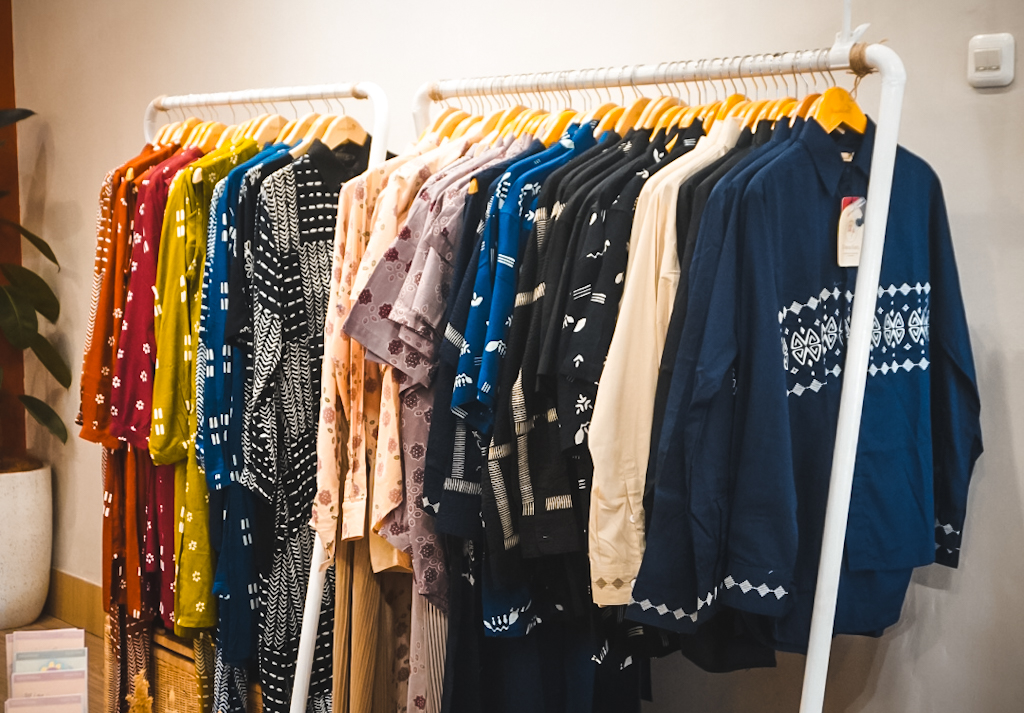
Q: So when the idea for the brand came up, there was still no Dama Kara name yet?
A: Right, we still didn't know what we wanted to make exactly. However, we knew for sure that the brand operates in the clothing sector because we already have the knowledge and the resources. Because my basic education is in communication and community development, I tried doing research. Until finally I got literature about Irish Grace, an autistic child from England. So, her family provided image therapy so that Irish Grace could express herself. The resulting drawings were recognized by the art curators there as good and unique. From there, we tried to reach out to the Our Dream Indonesia community and we saw their results. So, we intended to embrace the community of autistic children in Indonesia so that they have space to create.
Q: Then why does it have to be applied to Batik?
A: Initially we wanted to directly apply children's drawings to direct clothing motifs. However, after we asked around the clothing factory, it turned out that making our own and different motifs like this would cost quite a lot. Not coming in with our capital. So in the end, we thought about making the main product first which could ultimately support our goal of empowering children with special needs. The idea for batik itself came when we visited Solo. It's a bit sad to see that the craftsmen there are already old, the enthusiasm of young people is lacking. So we were inspired to help preserve it by making batik our main product.
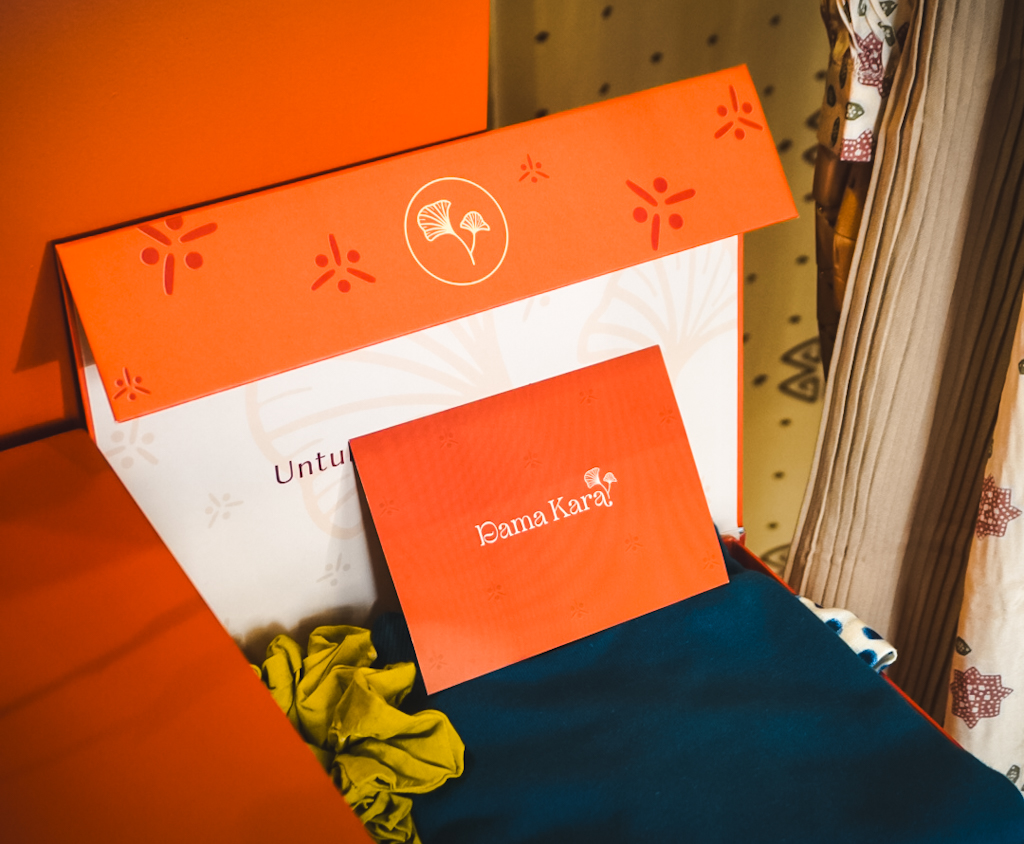
Q: I personally really like the Dama Kara batik motif. Where did the idea for these motifs come from?
A: The Dama Kara batik motif itself is inspired by everyday life. For example, this Gayatri collection. We chose a two-line motif which symbolizes the two sides of life, advantages and disadvantages. These two sides are of course interrelated in our lives. Then we also have the Suar motif, the result of a collaboration with Putri Marino. In this motif, she tells about the phase of her life where she was bullied until she finally moved to Jakarta to prove her light as we know it now. Following the name of the collection, Suar, which means light. So the majority of inspiration comes from everyday life. Some are also combined with existing Indonesian batik motifs.
Q: We are very interested in the Ganjil and Genap collections. Can you tell me more?
A: The Ganjil Collection is a collection that highlights batik and its motifs. The aim is to support social empowerment. This could be to support children's therapy, or it could also be to support other social campaigns that are relevant to Dama Kara's motivation. For example, during the pandemic, we set aside 50 thousand/pcs from sales of the Ganjil collection to support mothers who were heads of families during the pandemic. Meanwhile, the Genap collection is the result of children's image therapy, whose community collaborates with us. The images that we have curated will later be used as clothing or other accessories. Creators will also receive royalties from product sales. So they can live from the results of their work.
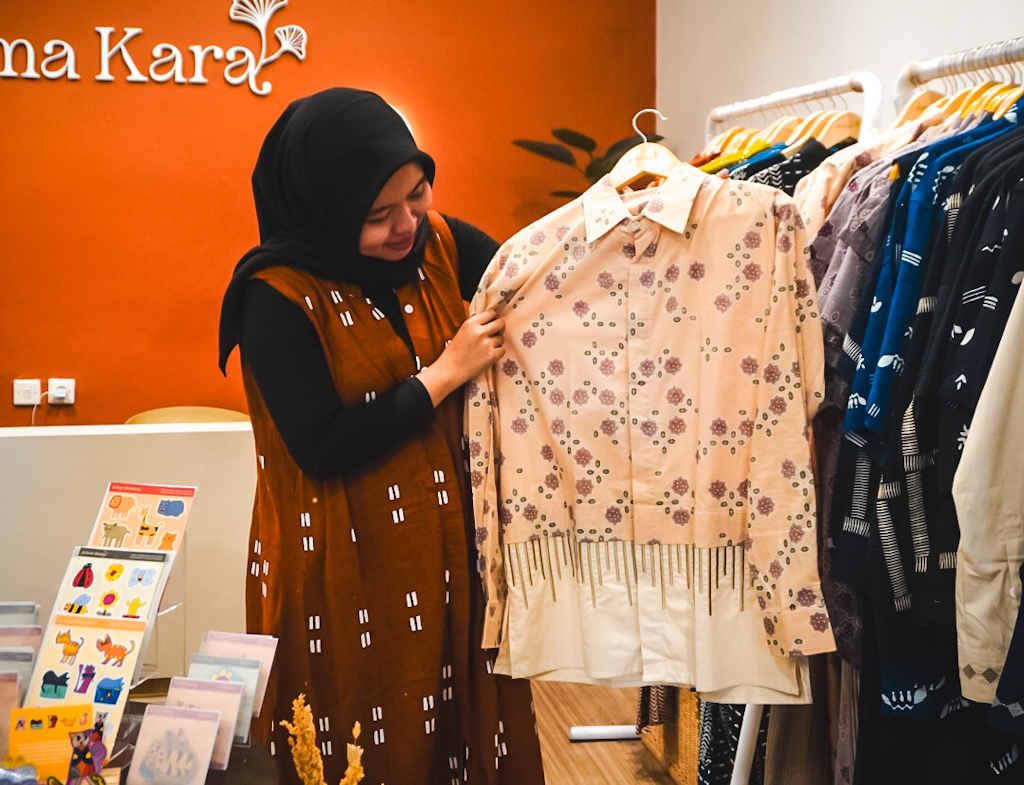
Q: Is there any special motivation for involving people with autism?
A: Actually, just make it a space for them to work. Because I saw before I created Dama Kara. When I went back to the foundation, I saw that the drawings were really good, which meant it was something I hadn't thought of. Like, for example, they wear ribbons around their necks, and then there's a cat carrying this or something I didn't think to draw. But their imagination is great, like, for example, an elephant but drawn in colourful colours, something like this I didn't even think of a picture myself.
Q: As a businesswoman. What do you think about the increasing number of women entering business?
A: Of course, it's a good thing. What's more, today's technology makes this easy. In my opinion, by doing business, women can more easily manage their time with the multi-roles they carry out. Because women are blessed with the advantage of not only thinking about themselves. So when doing business, women not only give more to themselves, but to those around them too.
Q: What characteristics should a businesswoman have?
A: Consistency. Sometimes women are moody, sometimes enthusiastic, sometimes not. So, businesses need to consistently provide the same energy every day. The same as what we do as mothers or other multi-roles, we have to be consistent. Day to day it must be maintained.
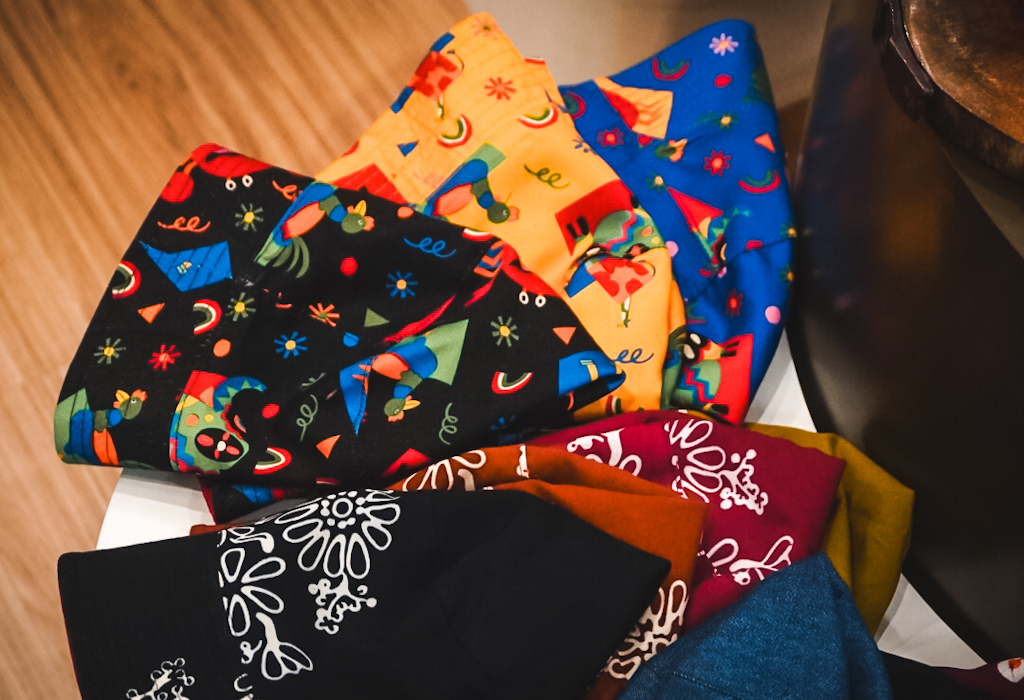
Q: How do you maintain this consistency?
A: I always remember why this business was created. I remember the ups and downs of establishing Dama Kara. That always makes me enthusiastic about running the business in the future and keeping Dama Kara able to continue to exist.
Q: Lastly, what are Dama Kara's plans for the future?
A: We want to have our own foundation too. We want to have a foundation. So far, it's been the children who have joined the foundation who have been making image therapy. Meanwhile, not all of the children with special needs are lucky enough to go to school at the foundation. I want to be able to reach out to more friends. From a business perspective, we want to have a shop with a larger space in Bandung, and have a shop in Jakarta too.
Q: Well thank you for your time.
A: You're welcome, thank you for visiting Dama Kara.
Dama Kara
Jl. Cihapit No. 33 Bandung
P: 0817-7234-5289
Instagram
Website



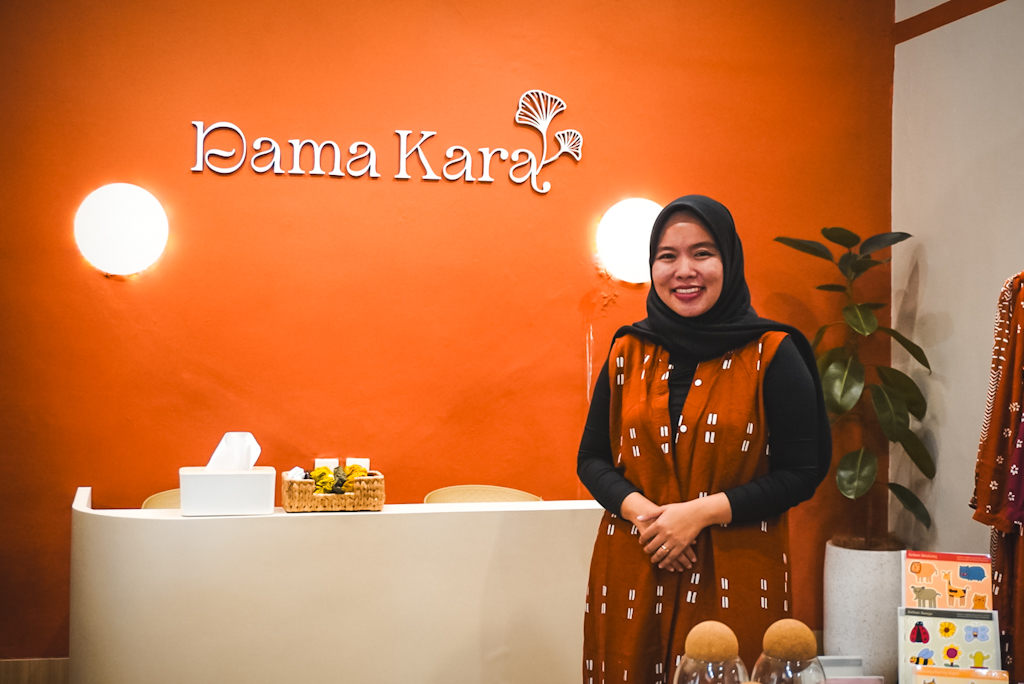
 Aldito Virandi Tagor
Aldito Virandi Tagor
 Mar 08, 2024
Mar 08, 2024
